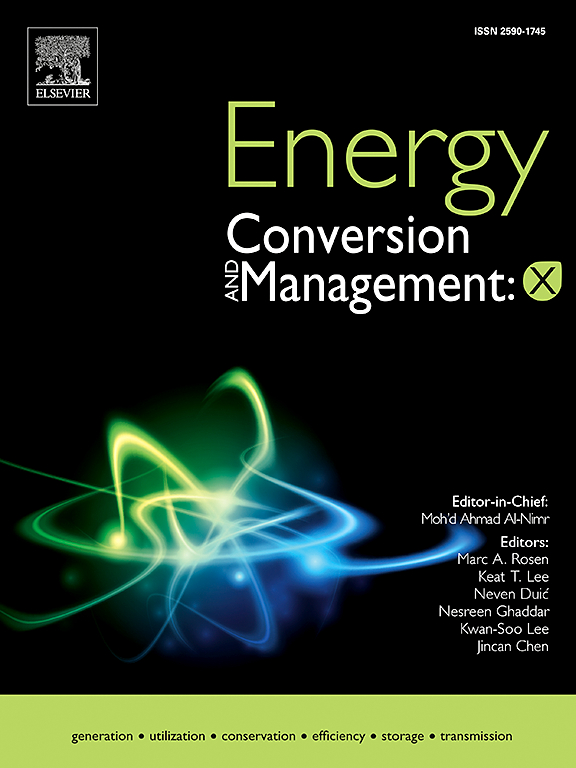Advancing sustainability in LNG-Powered electricity generation: A comprehensive life cycle sustainability assessment
IF 7.1
Q1 ENERGY & FUELS
引用次数: 0
Abstract
Meeting the rising global energy demand necessitates efficient and sustainable electricity generation, with Liquefied Natural Gas (LNG) emerging as a cleaner alternative to traditional fossil fuels. In 2020, the United Kingdom generated 121.04 TWh of electricity using natural gas, accounting for over one-third of its total electricity production. However, achieving sustainability in LNG-based electricity generation remains a significant challenge. This study evaluates the sustainability of LNG-derived electricity in the UK, focusing on LNG sourced from Qatar, through a comprehensive life cycle sustainability assessment spanning eleven stages from natural gas extraction to power generation. The analysis integrates life cycle assessment, Aspen Hysys process simulation, and sensitivity analysis to identify key stages for improvement. The findings highlight that natural gas extraction contributes 96.23% of the total energy consumption, while power plants are responsible for 67.42% of total greenhouse gas emissions. Economic analysis identifies high operational costs and resource intensity as major barriers to sustainability. Socially, while LNG shipping creates employment opportunities, it raises concerns about fair compensation practices. Sensitivity analysis identifies regasification as a critical stage where targeted improvements can significantly reduce emissions. Furthermore, optimizing vessel design and LNG shipping routes offers the potential for minimizing environmental impacts. This study recommends strategic actions such as enhancing shipping logistics, advancing liquefaction technologies, and integrating renewable energy to improve the sustainability of LNG-based electricity generation. The findings provide actionable insights for policymakers, industry stakeholders, and researchers, emphasizing the need to critically reassess LNG’s role in shaping a sustainable energy future.

求助全文
约1分钟内获得全文
求助全文
来源期刊

Energy Conversion and Management-X
Multiple-
CiteScore
8.80
自引率
3.20%
发文量
180
审稿时长
58 days
期刊介绍:
Energy Conversion and Management: X is the open access extension of the reputable journal Energy Conversion and Management, serving as a platform for interdisciplinary research on a wide array of critical energy subjects. The journal is dedicated to publishing original contributions and in-depth technical review articles that present groundbreaking research on topics spanning energy generation, utilization, conversion, storage, transmission, conservation, management, and sustainability.
The scope of Energy Conversion and Management: X encompasses various forms of energy, including mechanical, thermal, nuclear, chemical, electromagnetic, magnetic, and electric energy. It addresses all known energy resources, highlighting both conventional sources like fossil fuels and nuclear power, as well as renewable resources such as solar, biomass, hydro, wind, geothermal, and ocean energy.
 求助内容:
求助内容: 应助结果提醒方式:
应助结果提醒方式:


